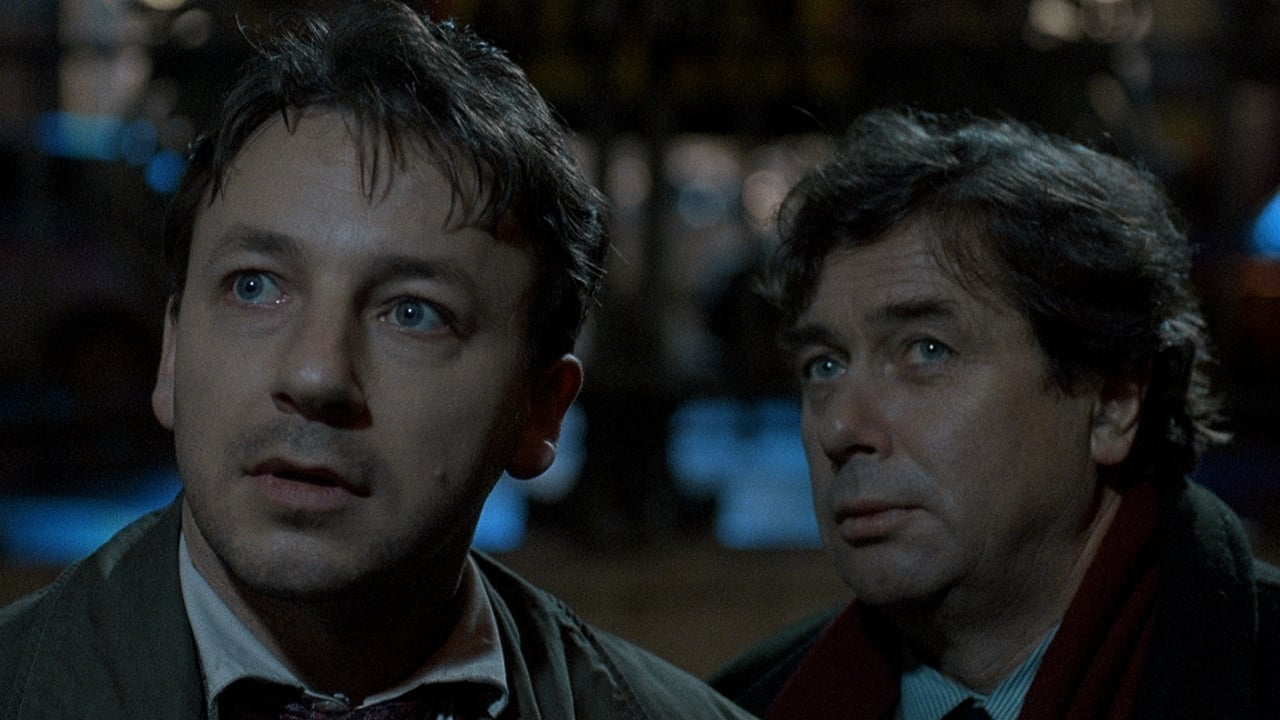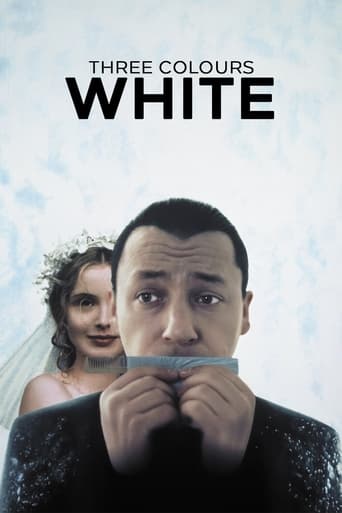WasAnnon
Slow pace in the most part of the movie.
Pacionsbo
Absolutely Fantastic
filippaberry84
I think this is a new genre that they're all sort of working their way through it and haven't got all the kinks worked out yet but it's a genre that works for me.
Brennan Camacho
Mostly, the movie is committed to the value of a good time.
ayhansalamci
"All men make mistakes, but a good man yields when he knows his course is wrong, and repairs the evil. The only crime is pride."
It's a great film about inequality. We are watching a struggle of pride.
He was in criticism of the capitalist system over Poland.
I do not think it's the best film of the trilogy. But I can say that I like this movie very much.
chaos-rampant
User comments for this one are way off the mark. One claims the film is really about marriage, another assigns "stubborn spitefulness" to Delpy (she just wants her man to be able to get it on!), or how it's about French society. Others seem to have taken Kieslowski at face value when he mentioned that each film in the trilogy is inspired by the French motto and try to explain how this is the "egalite" film. Kieslowski may have coaxed funds from the French by giving them something they could buy into in a cultural way (he's pretty much said so) but we have no reason to rest there.The story such as you see it never really happened. Kieslowski makes a point to show us a man being flown to Poland in a suitcase, a hairdresser who is turned into a business mogul just like that, or why Delpy is locked up in prison with no evidence. Blue was about memory, something that happened in the past and now resurfaces to color reality. This one is about imagined anticipation: desire. We have a marriage breaking apart, the courtroom bit is your anchor and probably the only real one. She used to love him until he couldn't get hard any more, but even this might be his failure to save his marriage (a blow to male ego) taking shape as male impotence to consummate.The rest of the film is wish-fulfillment fantasy where he laments himself as broke and homeless, endures all kinds of hardship until he picks himself up, becomes rich and powerful (that's virility for his male ego), watches her cry over his grave and stages his comeuppance after a night of giving her the best sex of her life.But love for her melts away this vindictive fantasy of asserting himself. He never leaves for Hong Kong as planned. He visits her in prison instead. Watching her through theater glasses from below, she motions to him about getting married again. It's all about a narrator living through the illusory reality that desire creates.It resembles an episode from the Dekalog. Like most of the Dekalog, the plot overpower's Kieslowski's visual ability.
gavin6942
Second of a trilogy of films dealing with contemporary French society shows a Polish immigrant (Zbigniew Zamachowski) who wants to get even with his former wife (Julie Delpy).Apparently, the film has a political subtext, in which Karol's impotence and financial helplessness in France, and subsequent rise as a somewhat shady capitalist, mirror the attempts of Poland to advance from its disadvantaged position within Europe. Was this intentional? Perhaps. But it is certainly one way to read the film."Three Colors: White "was met with critical acclaim by film critics, but is considered by many to be the weakest of the trilogy; it holds a 90% rating on Rotten Tomatoes, while the first and third films hold 100% ratings. 90% is nothing to get upset about.
StoryCharts
White is about a jealous husband seeking revenge on his wife by getting her to love him. The irony is that he succeeds in getting her love but the act of getting revenge ruins their chance of a life together as she's thrown in prison.Structurally the story is a bit loose, the revenge plot goes from success to success with no real obstacles while the love relationship also doesn't have many meaningful changes. It feels like the storytellers wanted to really focus on the irony of love/revenge at the end of the film that the journey getting there wasn't fleshed out in a meaningful way. The result is an enjoyable film but not a great film that will likely not warrant a second viewing because the controlling idea is not powerfully proved.The additional sub-plot of the friend seeking suicide because he is bored also does not resonate with the controlling idea much. The film is well shot and composed, but the controlling idea is certainly not proved.My Story Chart of the movie is at storycharts.ca

